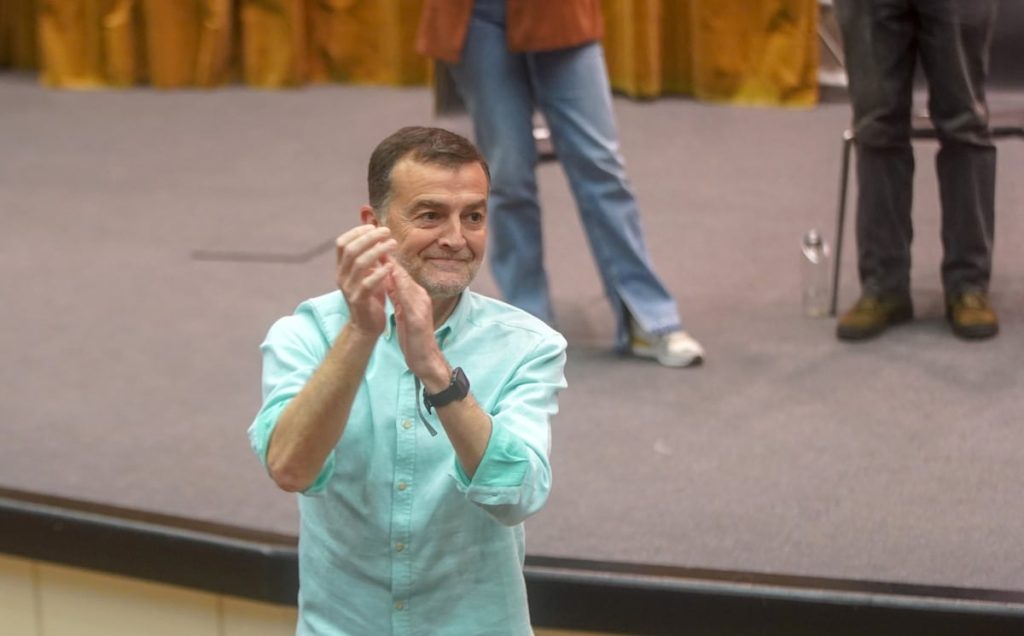Antonio Maíllo, a 57-year-old politician from Lucena, Cordoba, has won the elections to the leadership of the party and is expected to be ratified as the federal coordinator of IU. He emphasizes the importance of building broad left-wing fronts with respect to all parties, reaching out to his primary opponent Sira Rego to join the next Executive of IU, and advocating for her continuation in the Government. Maíllo believes in conducting politics with kindness, as expressed by the will of the party’s members. He aims to create an inclusive leadership that reflects the organization’s values.
Maíllo expresses his intention to invite valuable individuals from other factions, such as Sira Rego, to join the party’s leadership and be part of the collective project. He affirms his support for Rego’s role as a minister and emphasizes the importance of stability in the Government, particularly in the face of rising right-wing and far-right movements in Europe. He believes that IU should play a significant role in the construction of broad left-wing alliances over the next four years, emphasizing the organization’s strong ties to the community and commitment to respectful political engagement.
In response to concerns about potential division within the left-wing parties, Maíllo emphasizes the need for unity and cooperation, rejecting isolationist tendencies. He acknowledges that there is room for improvement in the current coalition-building processes but emphasizes the importance of inclusive and democratic decision-making. Maíllo highlights the significance of IU’s role in maintaining unity within the left-wing spectrum and preventing a scenario similar to the political situation in Italy.
Reflecting on his return to politics after stepping down in 2019, Maíllo acknowledges the challenges faced by the left due to internal conflicts and the impact of the pandemic. He aims to build a political space based on respect, kindness, and inclusivity, rejecting defeatist attitudes and emphasizing the importance of resisting the rise of the extreme right. Maíllo envisions a political project rooted in community engagement, respect for diversity, and democratic principles.
Looking ahead to the upcoming elections, Maíllo emphasizes the importance of persuasive campaigning and leadership beyond individual figures. He believes that Sumar, the coalition led by IU, must focus on advocating for people’s rights and freedoms, rather than engaging in confrontations with other left-wing parties. Maíllo stresses the need for a collective effort to build a comprehensive political project that offers a viable alternative for society, government, and the state, rather than relying solely on individual leadership.
In conclusion, Maíllo’s vision for IU and the broader left-wing movement in Spain is rooted in inclusivity, respect, and a commitment to democratic processes. He aims to build strong alliances, promote cooperation among progressive forces, and resist the divisive forces of extremism. By emphasizing the importance of unity, kindness, and community engagement, Maíllo seeks to create a political space that inspires hope, mobilizes grassroots support, and offers a compelling vision for the future of Spain.


